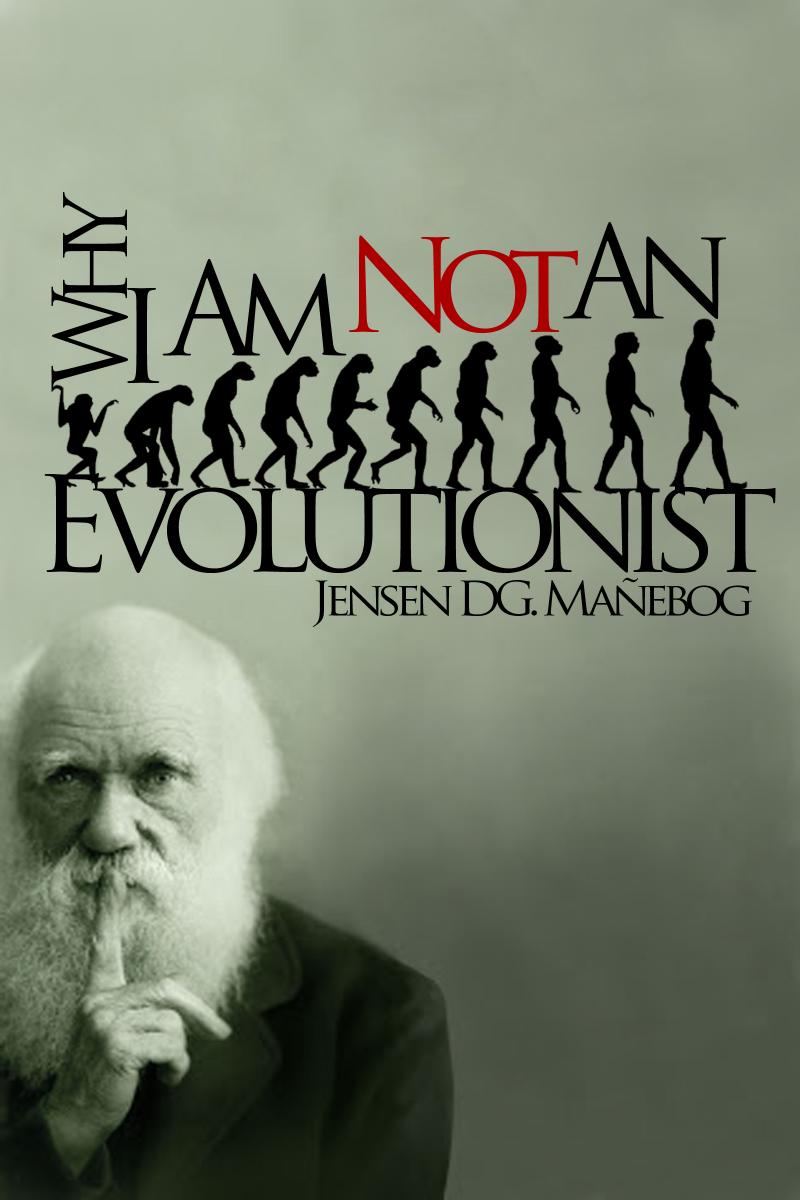Sponsored Links
Is the theory of Evolution authentically scientific? (II)
(Excerpted from the author’s article, “Richard Dawkins’ Foundations of Morality: A Critical Evaluation” [MA Philosophy, University of the Philippines, Diliman, Philippines]. Notes and references are found in the footnotes of the paper from which this article was taken. This article is the second of three parts.)
… Some problems with evolution as a theory in science
AS SCIENCE IS SEEN TO BE FUNCTIONAL and unquestionably admitted as serviceable in human societies, any theory which is really ‘scientific’ should of course be taken seriously. Hence, if Darwin’s evolutionary theory is without a doubt ‘scientific’ and is accurately representing science, then we ought to accept the worldview it implies as, at least, beneficial. So, as we’re still concerned here with the analysis (and not necessarily with metaphysics) of Dawkins’ worldview, let’s see if it’s really true, as [Darwinists] confidently assume, that to be scientific is to be evolutionist.
Evolution is commonly defined as a process through which the universe came to be by series of interrelated phenomena or events. In Biology, evolution postulates the existence from the beginning of simple forms of organisms which allegedly have been progressively modified over periods of time and gradually developed into more complex forms of organisms called plants and animals. The theory obviously attributes the origins of all life forms to the behavior of random chemical and physical forces, not to the deliberate or purposeful creation by God.
a) Fails to follow scientific method
Scientists themselves however have serious doubts about the theory. Claimed by its proponents as “scientific”, evolution nevertheless fails to follow the scientific method which requires empirical observations and repetitious experiential tests or experiments. Take note that there has never been one observable instance of any organism shifting or ‘evolving’ from one biological class to another or from one phylum to another. Recognizing that Darwinian evolutionary theory is no genuine scientific theory at all, even the evolutionist Loren Eiseley had conceded: “After having chided the theologian for his reliance on myth and miracle, science found itself in the unenviable position of having to create a mythology of its own: namely, the assumption that what, after long effort, could not be proved to take place today had, in truth, taken place in the primeval past.” [42]
b) Has claims which can not be demonstrated
As to evolution’s claim that the first living organism developed from lifeless matter, astronomer Robert Jastrow comments that, “…chemists have never succeeded in reproducing nature’s experiments on the creation of life out of nonliving matter. Scientists do not know how that happened.” [43]
Hence, while evolution is widely submitted as a scientific fact, in reality it remains to be an unverified hypothesis or theory in science that has not been proven, for many of its claims are founded on data that cannot be demonstrated if not totally absent…
c) Contains suppositions inconsistent to observable phenomena
Conflicting presuppositions can nevertheless be detected in the Darwinian theory. The claim for instance that evolution—the alleged development of lower forms to higher forms of living things—is a result of mutation/s of species appears to be very inconsistent. This is because of the common knowledge of scientists themselves that mutations generally are corruption of a superior to an inferior being, which in turn is usually not capable of procreating. And to submit that “highly exceptional beneficial mutations” explain evolution is to nonetheless make a hardly scientific proposal—basing one’s scientific belief on highly accidental chance or improbability.
To be a little “technical”, let’s take a case revealed by Professor Frank Allen of the University of Manitoba about evolutionists’ claim concerning hydrogen and uranium:
“According to the theory of evolution, there should be a progressive building up from the simplest, hydrogen, to the most complex, uranium. The exact opposite, however, is found. Uranium is known to disintegrate into a series of elements of diminishing weights, the most sensational of which is radium, and the final one is lead. During this process, atoms of the gas helium, the next lightest to hydrogen, are thrown off. The heaviest elements are therefore the origin of the lightest.” [44] (emphasis added)
And to be less technical this time, let’s take Harold Sala’s words on Dawkins’ belief on evolution:
“On the personal side of the argument I would be more inclined to look seriously at Dawkins premise if I saw some positive movement in our world towards longevity, towards growing stronger as the years progress, and towards seeing my receding hairline reverse itself. The trend of both history and science is that, left to its own, things move towards decay and disintegration, not towards complexity….Embracing the implications that Darwin’s theory leads to requires a far greater leap of faith than to accept the verdict of shepherd boy named David who on the hills of Bethlehem wrote, ‘The heavens declare the glory of God; the skies proclaim the work of his hands’ (Psalm 19:1).” [45] (emphasis added)
d) There are crucial gaps in fossil records
Moreover, evolution also has the problem of presenting the ‘gaps’ in fossil records. Richard Dawkins explains these famous gaps and defends evolution in its current inability to show such gaps:
“Many evolutionary transitions are elegantly documented by more or less continuous series of gradually changing intermediate fossils. Some are not, and these are the famous 'gaps'. …[N]ote yet again the unwarranted use of a default. If there are no fossils to document a postulated evolutionary transition, the default assumption is that there was no evolutionary transition, therefore God must have intervened.
“It is utterly illogical to demand complete documentation of every step of any narrative, whether in evolution or any other science. You might as well demand, before convicting somebody of murder, a complete cinematic record of the murderer's every step leading up to the crime, with no missing frames. Only a tiny fraction of corpses fossilize, and we are lucky to have as many intermediate fossils as we do. We could easily have had no fossils at all, and still the evidence for evolution from other sources, such asmolecular genetics and geographical distribution, would beoverwhelmingly strong.” [46] (emphasis added)
Admittedly, to demand a complete documentation of every step of evolution is as illogical as to demand a complete cinematic record of the murderer’s every action (concerning the crime) before convicting him of murder. Indeed, no sane and just judge would ever do that. But neither would a fair and righteous judge unjustly convict someone of murder with only questionable and underprovided evidences from the prosecutor—just as reasonable people would not just accept evolution to be true with its still debatable and undersupplied evidences. Dawkins’ whining, “Only a tiny fraction of corpses fossilize, and we are lucky to have as many intermediate fossils as we do” and his ‘passing of buck’ to molecular genetics and geographical distribution betray the obvious that evolutionists’ fossil records are not plenty enough to declare evolution as ‘true beyond reasonable doubt’. Dawkins seems to forget that as the one proposing the theory, it is them, the evolutionists, who have the ‘burden of proof’. Hence, Dawkins’ court analogy boomerangs!
e) The still missing ‘missing link’
Considering the lack of fossil evidence as “the most obvious and gravest objection … against [his] theory,” [47] Darwin himself asked the question, “Why, if species have descended from other species by fine gradations, do we not everywhere see innumerable transitional forms?” [48] On April 19, 1882, Darwin passed away holding on to his hope that the fossil record would one day bear witness to his theory.
To his dismay if he were still alive, there is yet no conclusive evidence up to this moment that shows the existence of fossil transitions from lower to higher forms of life. Harold Sala studied the history of the attempts to confirm evolution through fossil findings and afterwards wrote:
“So certain have been scientists (paleontologists in particular) that the missing link would be found, there has been an ongoing chorus of voices saying, “This is it! We’ve fount it!” only to discover that the newly discovered “missing link” wasn’t quite what it was supposed to have been, and the great discovery turned out to be a fraud, hoax, or a premature diagnosis driven by the desire to come up with something conclusive. Such was the demise of the Piltdown Man, discovered in 1912 at Piltdown, England. No fewer than 500 doctoral candidates made this skull the subject of their dissertations only to learn in 1953 that they (as well as the scientific community at large) had been the victims of a colossal fraud perpetrated by a Hastings dentist who pieced together the find as a practical joke from a hodgepodge of bones not even from the same animal.” [49] (emphasis added)
Another author, Walter Brown, regarding the controversy concludes:
“If evolution happened, the fossil record should show continuous and gradual changes from the bottom to the top layers. Actually, many gaps or discontinuities appear throughout the fossil record. The fossil record has been studied so thoroughly it is safe to conclude these gaps are real; they will never be filled.” [50] (emphasis added)
f) Unable to explain the origin of matter
Furthermore, not only have evolutionists never found the “missing link” (between human and animal) if man had indeed evolved from lower form, but also they fail to explain how something came from nothing—and thus fall short of explicating the origin matter. In a radio debate with David Quinn on October 9, 2006 in The Ryan Tubridy Show, when Quinn said, “…you invoked a mystery argument that you accuse religious believers of doing all the time. You invoke a very first and most fundamental question about reality. You do not know where matter came from”, [Richard] Dawkins’ (a self-confessed Darwinist) frank answer was, “I don’t know. Science is working on it.” [51] In fact, when time and again challenged to explain the existence of matter in that debate, evolutionist Dawkins responded five times with a variant of “science is working on it”. [52] We may thus wonder, “How does ‘science is working on it’ significantly differ from a Christian saying, ‘God did it using means which are currently beyond our understanding?’” [53]
(with continuation)
Related articles:
Is the theory of Evolution authentically scientific? (III)
Is the theory of Evolution authentically scientific? (I)
How to cite this article:
Jensen DG. Mañebog. “Is the Theory of Evolution authentically scientific?” (II) @ www.OurHappySchool.com







Comments
Arjen Mae D. Palermo (not verified)
Wed, 06/26/2013 - 12:59
Permalink
Many scientists have
Add new comment